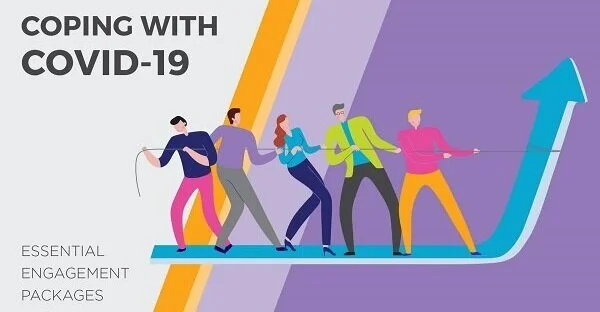Weighing up whether to engage online or face-to-face? Download a free resource that walks you through the benefits of each format. It’s a little taster of our upcoming Virtual Facilitation course which sets you up with the skills needed to design and facilitate impactful online sessions. PLUS we have two more free tasters for you - one for Engagement Planning and one for the Art of Facilitation. These popular short courses are coming to you live and facilitated in August and enrolments are now open.
CRUCIAL FIRST STEPS TO FACILITATION PLANNING – FREE RESOURCE
Effective facilitation requires proper planning, otherwise the canvas might be compromised before you get into the room. Download our free resource for the crucial first steps to facilitation planning and discover more about our Art of Facilitation online course. This is the third resource shared in our free MosaicLab Academy Taster Series.
FREE GUIDE ON DELIBERATIVE ENGAGEMENT FOR VICTORIAN COUNCILS
To help local councils in Victoria navigate the deliberative engagement requirements in the new Local Government Act, MosaicLab has launched a free, short guide.
This e-book is specifically for local government staff and decision makers, and aims to provide assistance and information to help councils better understand deliberative engagement, its principles and how it can be implemented into council processes to meet the new requirements of the Act.
BALANCING COST, RISK & BEST-PRACTICE THROUGH A TROUBLED TIME
It takes time, effort and resources to achieve best practice engagement at the best of times. And right now it’s not the best of times. We’re hearing from many that engaging at all (let alone engaging well) is difficult.
Your organisation may be grappling with how to respond to the crisis, facing reduced revenue and budget cuts, responding to increased demand for community support and services, and wondering how to sustain it all long term. Local government bodies are also working to comply with the enhanced engagement requirements set out in the Local Government Act.
So we’ve announced two new service options designed to help you engage robustly, cost-effectively and appropriately.
COPING WITH COVID-19: ESSENTIAL ENGAGEMENT PACKAGES
MosaicLab is here to support you and your team as you change and readjust in response to COVID-19. To help you acclimatise, we’ve put together two exclusive, new engagement service options.
We can work with you to help transition your team to working from home through an interactive, online, facilitated strategy session.
We’ve also launched a new training and coaching package - working with individuals or groups to support you to engage and connect with people appropriately through a time of anxiety and upheaval.
DEMOCRACY BEYOND ELECTIONS: 'HOW TO' GUIDE PUBLISHED
What works? Democracy in Australia and beyond
MosaicLab's co-founder Nicole Hunter recently took part on a panel of esteemed guests discussing potential futures for democracy across Australia and the World. The panel formed part of the University of Canberra Institute for Governance and Policy Analysis (IGPA) Smart Governance Conversation on Desirable Futures series.
The evening saw a very interesting conversation take place around democracy in Australia and beyond and ideas for doing it differently in the future. If you weren't lucky enough to make it on the evening, today we're sharing the official video of the panel discussion.
#MonthlyMyth: Tables enhance conversation
(Invaluable) deliberation insights 2 - decision makers
Did you see last month's invaluable deliberation insights post? We shared a video chock full of ideas and advice from project managers who had been through a deliberative journey.
This month, we're sharing the second video in this series - insights from decision makers who have led their organisations though a deliberative engagement experience.
CRITICAL THINKING STUDY INSIGHTS PART 1: THE RESEARCHER
If you happened to come across our previous post ‘A new venture into critical thinking’, you will know that MosaicLab is currently working on a fascinating research project with Lyn Carson of Active Democracy and the newDemocracy Foundation.
A final report is now in development, and, excitingly, early indications suggest that introducing critical thinking concepts to participants during deliberative processes can result in a number of benefits.
From increased trust (between both participants themselves and between participants and decision makers) to increased ability for participants to question and understand information (including complex or technical data), the work is highlighting how these skills can enhance and transform both processes and participants.













